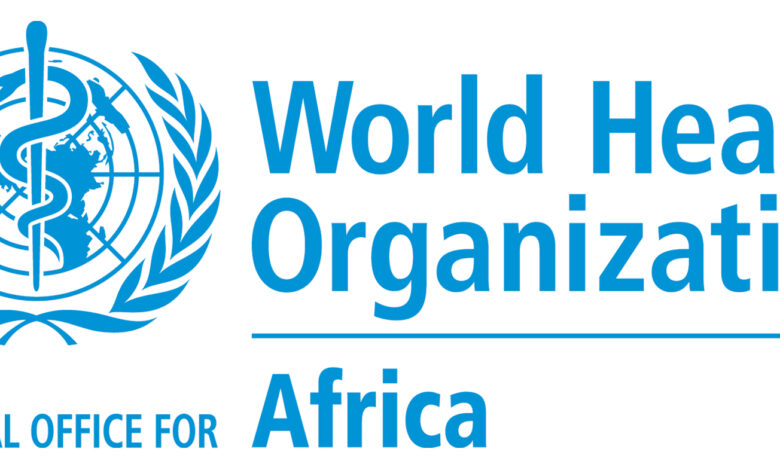New study challenges understanding of pandemic preparedness and resilience in Africa

Countries in Africa assessed as being least vulnerable to an epidemic were the worst affected by COVID-19, new research suggests.
Nations with more urban populations and strong international travel links were worst affected by the pandemic, the study shows.
Mortality rates and levels of restrictions – such as lockdowns and travel bans – were found to be lowest in countries previously thought to be at greatest risk from COVID-19.
A team of researchers from the NIHR Global Health Research Unit Tackling Infections to Benefit Africa (TIBA) from the University of Edinburgh worked with the World Health Organization (WHO) African Region to identify factors affecting mortality rates during Africa’s first two COVID-19 waves and the timing of the first reported cases.
Professor Mark Woolhouse, TIBA Director, who co-led the study, said: “Our study shows very clearly that multiple factors influence the extent to which African countries are affected by COVID-19. These findings challenge our understanding of vulnerability to pandemics.
Our results show that we should not equate high levels of preparedness and resilience with low vulnerability.
“That seemingly well-prepared, resilient countries have fared worst during the pandemic is not only true in Africa; the result is consistent with a global trend that more developed countries have often been particularly hard hit by COVID-19.”
Among 44 countries of the WHO African Region with available data, South Africa had the highest mortality rate during the first wave between May and August 2020, at 33.3 deaths recorded per 100,000 people. Cape Verde and Eswatini had the next highest rates at 17.5 and 8.6 deaths per 100,000, respectively. At 0.26 deaths recorded per 100,000, the lowest mortality rate was in Uganda.
South Africa also recorded the highest mortality rate during the second wave between December 2020 and February 2021, at 55.4 deaths per 100,000. Eswatini and Botswana recorded rates of 39.8 and 17.7 deaths per 100,000, respectively. The lowest rate was in Mauritius, which recorded no deaths during the second wave.
“The early models which predicted how COVID-19 would lead to a massive number of cases in Africa were largely the work of institutions not from our continent. This collaboration between researchers in Africa and Europe underlines the importance of anchoring analysis on Africa’s epidemics firmly here,” said Dr. Matshidiso Moeti, WHO Regional Director for Africa and co-author. We can no longer focus our understanding of disease transmission purely on the characteristics of a virus – COVID-19 operates within a social context which has a major impact on its spread.”
As well as those with large urban populations and strong international travel links, countries with high rates of HIV were also more likely to have higher mortality rates. This may be because people with HIV often have other health conditions that put them at greater risk from COVID-19, the team suggests.
The weak link between mortality rate and the timing or severity of government-imposed restrictions on day-to-day activities is shows the impact of the wide range of application and enforcement of these restrictions across the region, making a consistent impact pattern difficult to discern. Restrictions during peaks of infection are well documented to have interrupted transmission in the region.
The findings show that the earliest recorded cases of COVID-19 were in counties where most people live in urban areas, with strong international travel links and greater testing capacity. Algeria was the first of 47 African countries to report a case, on 25 February 2020. Most countries had recorded cases by late March 2020, with Lesotho the last to report one, on 14 May 2020.
Researchers document higher deaths during the second wave, as compared to the first. The peak of infections during the second wave was also higher, with 675 deaths across the continent on 18 January 2021 compared with 323 during the first wave peak on 5 August 2020. Potential under-reporting was accounted for in the analysis.
Dr Sarah Puddicombe, NIHR’s Assistant Director for Global Health Research, said: “This study offers compelling results which challenge accepted views of epidemic preparedness and resilience in Africa. It is one of a series of important contributions that the TIBA partnership, working with governments and the WHO Regional Office has made to inform local, national and pan-African responses to the COVID-19 pandemic.”
The study, published in the journal Nature Medicine, is available to read in open access: https://www.nature.com/articles/s41591-021-01491-7
The research was supported by the UK National Institute for Health Research and the Darwin Trust of Edinburgh. It also involved researchers from the Universities of Nairobi, Ghana and Hong Kong.Distributed by APO Group on behalf of WHO Regional Office for Africa.
Send us your press releases to [email protected]
© Press Release 2021
Disclaimer: The contents of this press release was provided from an external third party provider. This website is not responsible for, and does not control, such external content. This content is provided on an “as is” and “as available” basis and has not been edited in any way. Neither this website nor our affiliates guarantee the accuracy of or endorse the views or opinions expressed in this press release.
The press release is provided for informational purposes only. The content does not provide tax, legal or investment advice or opinion regarding the suitability, value or profitability of any particular security, portfolio or investment strategy. Neither this website nor our affiliates shall be liable for any errors or inaccuracies in the content, or for any actions taken by you in reliance thereon. You expressly agree that your use of the information within this article is at your sole risk.
To the fullest extent permitted by applicable law, this website, its parent company, its subsidiaries, its affiliates and the respective shareholders, directors, officers, employees, agents, advertisers, content providers and licensors will not be liable (jointly or severally) to you for any direct, indirect, consequential, special, incidental, punitive or exemplary damages, including without limitation, lost profits, lost savings and lost revenues, whether in negligence, tort, contract or any other theory of liability, even if the parties have been advised of the possibility or could have foreseen any such damages.




